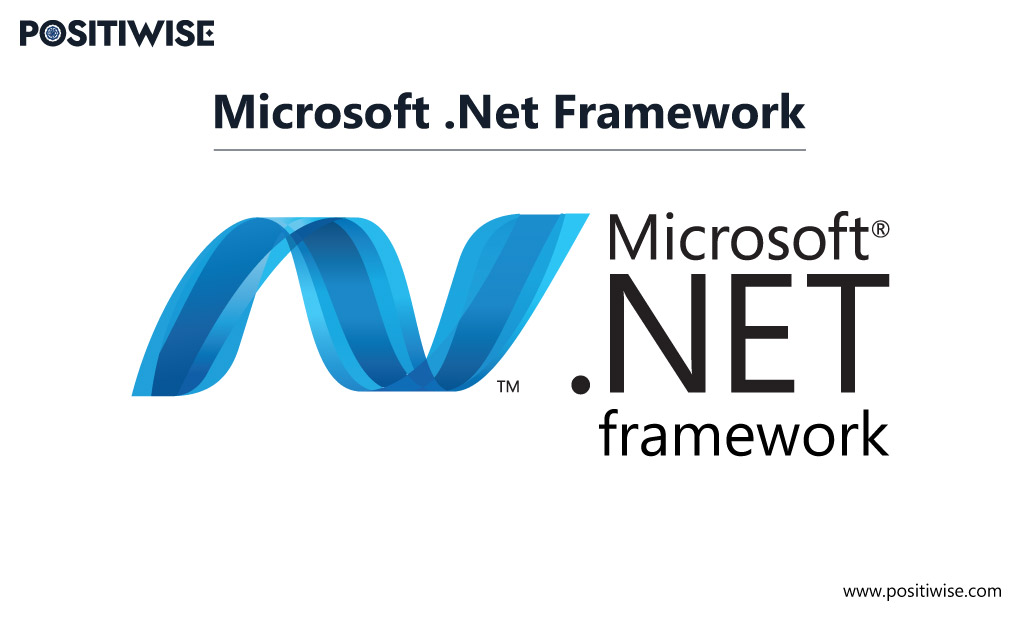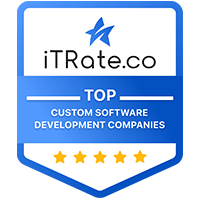Quick Overview:
A detailed insight is offered about the .NET development cost in 2024. The blog defines five primary factors impacting the overall development budget. In addition, the cost of .NET development is offered on the basis of project size. You will also learn tips to reduce costs and develop your .NET software affordably.
Introduction
The cost of .NET development is a dynamic value that can change even with the slightest modification in the requirements, project size, and type. Due to this, firms looking to avail of .NET development services have a lack of certainty in creating their budget.
But, no more confusion. Here, you will find details about all the factors contributing to overall development costs in 2024.
What is .NET Development Cost Analysis?
.NET development cost analysis refers to the procedure of determining an approximate budget required to build a .NET application. Every organization that wants to develop its .NET software requires an idea about the current cost of human, hardware, and software resources.
In addition, a number of factors are used to determine the cost, such as developer location, experience, complexity, and more. All these aspects are discussed further to provide a detailed insight.
The Benefits of Analyzing the Cost of .NET Development?
The benefits of conducting cost analysis are as follows:
- It helps to gain clarity about the budget.
- It supports your understanding of the factors that contribute to the overall budget.
- It aids in minimizing costs by removing additional expenses.
- It helps you prepare for the investment required for software development and maintenance.
- It helps you analyze the overall budget and ROI to gain from it.
Factors Contributing To .NET Development Cost
Following are the five primary factors that highly impact the cost of developing a .NET application for any use case. You should always focus on the below-mentioned factors to know a close to an accurate value.
1: Location of .NET Development Company or Freelancer .NET Developer
Location plays a crucial role in increasing and decreasing the .NET development cost. Sometimes, the organizations reduce the cost by up to 50% by choosing the right company at the most cost-effective location.
In terms of cost-effectiveness, America, the United Kingdom, and European countries are considered as expensive. There’s not an exceptional difference between their development cost. But, if you move a little bit towards the nearshore countries like Singapore, Vietnam, and the Philippines, the cost will be reduced from 30% to 40%, compared to USA.
Further, if you choose a .NET development company or an individual developer from offshore locations, like India, then up to a minimum of 50% of the cost can be reduced. Various factors, as below, contribute to much lower investment.
- The currency exchange rate.
- There’s no minimum wage in most offshore countries. So, human resources are available at cheaper prices.
- The taxes on availing of such services are pretty low as compared to onshore countries.
Due to all such factors, where a .NET application is developed for US$65000 to US$180000 in the USA, the same app can be developed in India within US$60000 to US$97000.
2: Project Complexity and Size
The cost to develop a .NET application will change according to your requirements. If you want a static website with 5 to 10 web pages, it can be developed within US$15,000. Further, in the case of dynamic websites, web apps, and mobile apps, the cost reaches up to US$70,000 to US$1,20,000.
However, these costs are not fixed and are impacted by the location of your .NET development company. However, many more factors, as listed below, contribute to the project’s complexity.
- The number of third-party integrations, such as security and monitoring tools.
- There is a need to develop a component from scratch and align it with the required standards.
- API integration and embedding of CRM, ERP, and similar systems.
Furthermore, the size of the project can also increase the cost. For instance, a website with hundreds of product pages will be more expensive than a website with fixed 10 to 15 web pages. Similarly, the cost varies from project to project.
3: .NET Developer Experience and Expertise in .NET Stack
The more experience there is, the higher the hiring cost. Whether it’s a small-scale company or an enterprise, everyone needs an experienced .NET developer with the ability to handle all tasks efficiently. But, the experience comes at a cost that you have to pay.
According to experience, the cost to hire or hourly rate of .NET developer changes. For better insight, have a look at the following table.
| Total Experience (In Years) | Hourly Rate | Annual Salary |
|---|---|---|
| 1 – 3 Years (Entry Level .NET Developer) | US$24 – US$50 | Up to US$65,000 |
| 4 – 7 Years (Medium Level .NET Developer) | US$35 – US$60 | Up to US$80,000 |
| 8 – 13 Years (Senior Level .NET Developer) | US$48 – US$70 | Up to US$1,00,000 |
| 13 to 15+ (Veteran .NET Developer) | US$57 – US$87 | Up to US$1,50,000 |
Additionally, the per hour and annual salary can be increased according to the skills of a .NET developer. For instance, if a medium-level .NET developer has AngularJS or ReactJS expertise with database experience, the rate can reach up to US$65 – 68. Here, the location also interferes, as developer charges can be reduced by choosing a .NET development company at an offshore location.
4: Availing of a Number of .NET Development Services
NET development is an umbrella consisting of numerous services under it. Every organization requires a different set of services, which decides the total budget for application development. The services that most of the firms need are as follows:
- .NET development consultation
- .NET website development
- .NET application development
- .NET enterprise app development
- .NET support and maintenance
In addition, if an organization has a .NET app and wants to upgrade it, they will be required to avail of .NET modernization and maintenance services. The more services you get, the more you have to pay, as each service is provided at a different cost. Also, other factors, such as developer location and experience, will also contribute to the total cost of .NET development.
However, sometimes, you get the benefit of hiring a .NET development team every month and assigning them the work of your choice. Such approaches help you complete the work without bounding within a single service.
5: .NET Project Type
The last factor in the current list that impacts the .NET development cost is project type. Before moving further, let’s have a look at the type of .NET projects.
.NET project types:
- Static website
- Dynamic website
- Native desktop application
- Cross-platform desktop application
- Android mobile app
- iOS mobile app
- Hybrid mobile app
- Web-based application
- ERP and IT systems
- eCommerce website and app
The charges to develop any of these or more types of .NET software are different. When you approach a .NET development company, they will note down your requirements and provide you with possible solutions. And once you select whether you need an app, website, or web app, the company will provide the quotation.
Furthermore, according to the current market standards, the cost will range between US$20,000 to US$1,200,000+. This range is from small-scale static websites to large-scale enterprise systems.
Cost of .NET Development According To Project Size
In the previous section, an overview of the .NET development cost per project size is provided. But, this section provides a detailed insight for better clarification. All three main types of project sizes are discussed – small, medium, and large-scale.
1: Small-Scale Project
Small-scale projects are cheaper to develop as they have minimal requirements and don’t need senior-level .NET developers to work on them. Junior and medium-level .NET developers are enough to curate these projects. Static websites and web apps with basic features, such as contact forms, landing pages, and static product pages, mainly come under this category.
Further, building such small-scale software takes only two or three months. If you collaborate with a company in America, the UK, or Europe, it can cost you between US$5,000 and US$8,000/month. But, hiring developers from an outsourcing company in India, such as Positiwise Infotech, will cost you US$3250/month.
2: Medium-Scale Project
Medium-scale projects are more complex to develop than small-scale software. Senior .NET developers are required to write and debug the code and also manage the project. In addition, testers are also needed to ensure security, functionality, integrations, and other metrics.
The primary features of medium projects consist of a login interface, creation of user accounts, payment processing, accessing data from other sources through APIs, and similar. Such projects need more effort, experience, and resources, due to which the cost goes up from US$25,000 to US$65,000+.
However, the cost can vary according to the timeline, professionals in the team, services availed, and current market trends.
3: Large-Scale Project
Large-scale projects are the most expensive to develop and maintain. Only medium, senior, and veteran .NET developers work on such projects, which increases the cost. Mostly, Fortune 500 companies have these large projects, such as developing an enterprise management system, customer relationship system, decision-making system with AI capabilities, eCommerce store for a global audience, and more.
In addition, numerous third-party components and APIs are integrated within this software, which again contributes to higher development efforts, hours, and costs. Thus, the budget for a large-scale .NET application reaches US$350,000 to US$750,000.
Furthermore, if your application is bigger and more complex, then you should consult with a company offering dot net development services.
Looking to Effortlessly Boost Your .NET Project?
Equip your team with exceptional .NET expertise. Bring our skilled .NET Developer on board for your projects now!
The Final Cost To Hire a .NET Developer and Build a .NET Application
The final cost of hiring and availing of dot net development services is not fixed for any use case. There are a number of factors that determine the budget, such as:
- Hiring senior and veteran .NET developers can increase the cost of a small-scale project.
- Hiring junior .NET developers for a large-scale project can reduce the cost.
- Collaborating with an offshore company can save up to 60% of the cost as compared to hiring developers from an onshore .NET firm.
- A medium-scale project can be more expensive than a large-scale project due to its complexity and post-development requirements.
Likewise, the use case changes, and so does the cost to develop a .NET website, mobile app, web app, games, IoT network app, and desktop software.
How To Minimize the .NET Development Cost?
You can effortlessly minimize the cost of dot net application development by considering the following tips and tricks.
1: Outsource the Services
You should choose an offshore company that offers dot net and ASP.NET development services. Due to heavy differences in the currency exchange rate and affordable human resources at other locations, your overall budget will be reduced.
For instance, if you are in Canada, then you should select a .NET development company in India. It will help you leverage the dollar to Indian rupee exchange. Thus, your .NET software will be developed within the 50% cost that you would pay in your country.
2: Utilize Cloud Services
Regardless of the project size, it’s recommended to use cloud services, such as MS Azure, Google Cloud, IBM Cloud, and Amazon AWS. It will help you eliminate the cost of purchasing the servers and maintaining and securing them.
In addition, cloud services allow you to pay as you use, meaning that you will be charged only for the used services. For instance, if you use 100GB of space, then the cloud provider will charge only for that. Similarly, you will save cost on processing power, RAM, ROM, and other resources.
3: Choose Team According to Requirements
You should know about the right team size required for your project. It will help you save additional costs.
For a small-scale project, two or three .NET developers with fundamental testing and deployment experience are enough. Further, for medium projects, you need two medium and two senior developers, with a tester, QA, and project manager. For a large-scale project, three senior and two veteran developers must be in the team with QA analysts, admin, testers, and project managers.
Try to start with a minimal team size and add more if the project demands.
4: Undergo all the Terms and Conditions
There can be hidden costs written in the agreements. You should always clarify any hidden or additional costs with the development company. Also, to double ensure yourself, thoroughly read the terms and conditions. It will help you discover any such costs and negotiate them before project initiation.
5: Avoid Excessive Third-Part Integrations
Try to avoid third-party integrations in your .NET software, as sometimes you have to pay for their subscription or license. Also, adding tasks to integrate excessive components and APIs will lead to increased complexity and developer efforts. Due to this, you need to spend more on infrastructure, avail yourself of .NET development services, and hire seniors because of increased complexity.
Concluding Up
To determine the cost of developing .NET software, you have to focus on the project size, its complexity, required resources, .NET services, and developer location. All these factors contribute to the increase or decrease of the complete application budget.
In addition, it’s always recommended first to be clear about the requirements, then consult with multiple firms and avail of project quotations. Following this, you should select the most reliable and affordable one at your convenience.
Expert in Software & Web App Engineering
Parag Mehta, the CEO and Founder of Positiwise Software Pvt Ltd has extensive knowledge of the development niche. He is implementing custom strategies to craft highly-appealing and robust applications for its clients and supporting employees to grow and ace the tasks. He is a consistent learner and always provides the best-in-quality solutions, accelerating productivity.






